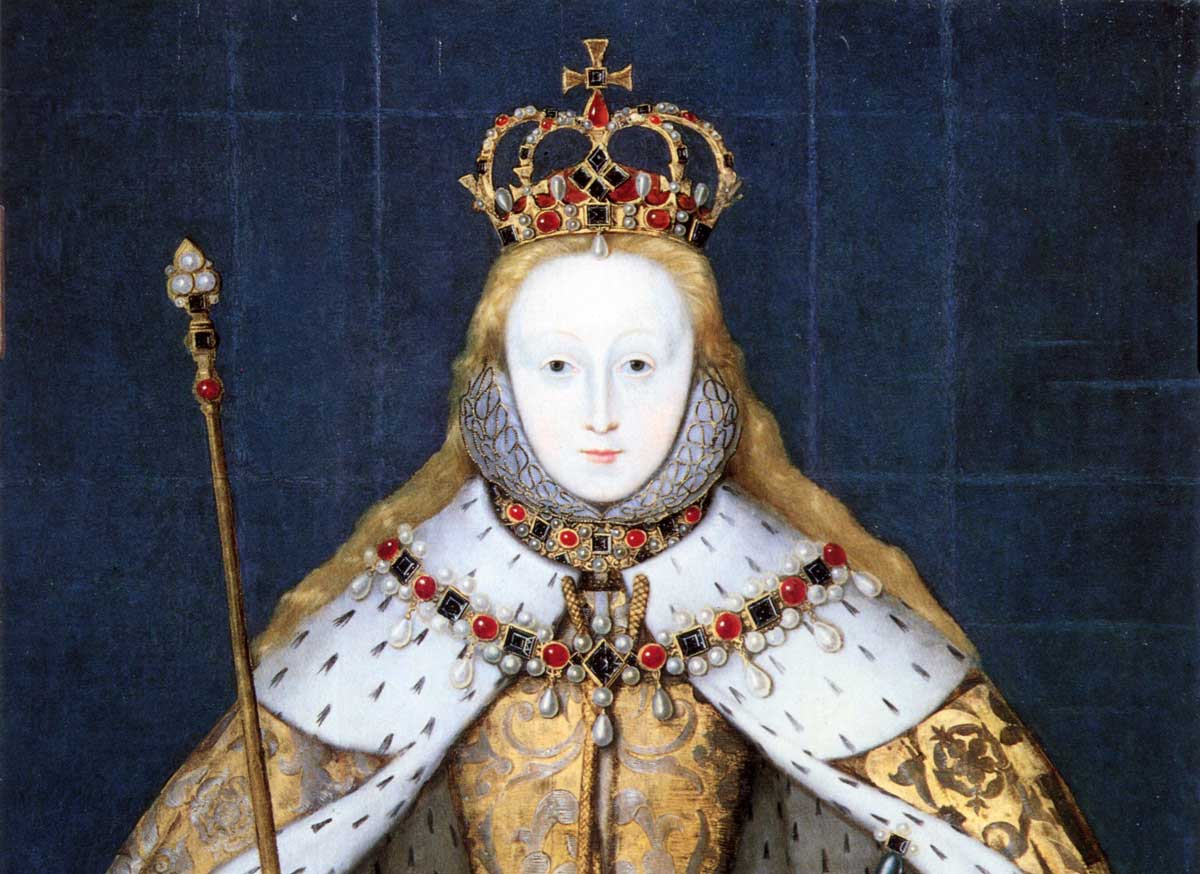
Elizabeth I
Elizabeth Tudor, Queen of England
England's most eloquent monarch whose masterful speeches helped define a golden age and establish the power of royal oratory to unite a nation.
Elizabeth I: A Short Biography
Elizabeth I transformed England from a divided, relatively minor European power into a confident nation that would dominate the world stage for centuries. Born in 1533 as the daughter of Henry VIII and his second wife Anne Boleyn, Elizabeth's early life was marked by uncertainty and danger. Declared illegitimate at age two when her mother was executed, she lived through the turbulent reigns of her half-siblings Edward VI and Mary I before ascending to the throne in 1558 at age 25.
Elizabeth inherited a kingdom beset by religious division, economic problems, and external threats. England was torn between Catholic and Protestant factions, the treasury was nearly empty, and powerful enemies like Spain and France watched for signs of weakness. Many doubted whether a young, unmarried woman could successfully rule in such circumstances. Yet Elizabeth would reign for 45 years, presiding over what came to be known as the Elizabethan Age which turned into a period of unprecedented cultural flowering, economic growth, and national confidence.
Central to Elizabeth's success was her extraordinary skill as a public speaker and communicator. In an age when royal authority depended heavily on personal charisma and the ability to inspire loyalty, Elizabeth proved herself a master of the spoken word. Her speeches to Parliament, her addresses to the people during royal progresses, and her carefully orchestrated public appearances became legendary. She understood that in the 16th century, effective rule required not just political acumen but theatrical genius, both of which she possessed in abundance.
As a Public Speaker
Elizabeth's oratorical skill lay in her ability to blend the formal grandeur expected of royalty with an intimacy that made her subjects feel personally connected to their queen. Her speeches combined classical rhetorical training with an intuitive understanding of her audience's hopes, fears, and expectations. She possessed what contemporary observers called the "golden gift of utterance" or a natural eloquence enhanced by rigorous education.
Her speaking style was carefully calibrated to each occasion and audience. Before Parliament, she could deliver sophisticated arguments about policy and precedent, drawing on her deep knowledge of history and law. Before troops at Tilbury, she became the warrior queen, donning armor and speaking with martial fervor. During royal progresses through the countryside, she transformed into the people's mother, using simple language and warm gestures to connect with ordinary subjects.
Elizabeth's mastery of rhetoric was rooted in her exceptional Renaissance education. Tutored by leading humanists including Roger Ascham, she became fluent in Latin, Greek, French, and Italian. She studied classical orators like Cicero and Demosthenes, absorbing techniques of persuasion, argument, and emotional appeal that she would later deploy with great effect. Her speeches reveal sophisticated understanding of rhetorical devices such as metaphor, antithesis, repetition, and climax.
Perhaps most remarkably, Elizabeth developed a unique rhetorical strategy for navigating the challenges of female rule in a patriarchal society. Rather than ignoring or apologizing for her gender, she made it central to her public persona. She spoke of having "the heart and stomach of a king" while embracing the role of virgin queen devoted to her people.
Notable Speeches
A chronological collection of Elizabeth I's most significant royal orations
First Speech to Parliament
Elizabeth's inaugural address as queen, establishing her authority and vision for England while navigating questions about marriage and succession.
Response to Parliamentary Pressure on Marriage
A masterful deflection of parliamentary demands that she marry, asserting royal prerogative while maintaining popular support.
Speech to the Troops at Tilbury
Elizabeth's most famous speech, delivered to English forces preparing to face the Spanish Armada, combining personal courage with national defiance.
Read MoreGolden Speech to Parliament
Elizabeth's final major parliamentary address, a moving reflection on her reign and relationship with her subjects, delivered near the end of her life.
Legacy & Impact
Royal Communication
Elizabeth revolutionized royal communication, establishing templates for how monarchs could use public speaking to build popular support and navigate political crises. Her combination of formal majesty with personal intimacy influenced royal protocol for centuries. Modern constitutional monarchs still employ strategies Elizabeth pioneered.
Leadership
Elizabeth's reign provided a powerful example of successful leadership in a male-dominated world. Her rhetorical strategies for claiming authority while navigating gender expectations influenced generations of leaders. Her speeches demonstrated how skilled communication could overcome social prejudices and established precedents that later rulers and politicians would follow. She proved that feminine qualities could enhance rather than undermine effective leadership.
English National Identity
Elizabeth's speeches helped forge a distinctive English national identity that combined Protestant Christianity, cultural confidence, and resistance to foreign domination. Her oratory during the Armada crisis established themes of English exceptionalism and maritime destiny that would influence British imperialism for centuries. Her reign marked England's emergence as a major European power, and her words provided the cultural foundation for this transformation.
Notable Quotes
I know I have the body of a weak and feeble woman; but I have the heart and stomach of a king, and of a king of England too.
— Speech to the Troops at Tilbury, 1588
Let tyrants fear. I have always so behaved myself that, under God, I have placed my chiefest strength and safeguard in the loyal hearts and good-will of my subjects.
— Speech to the Troops at Tilbury, 1588
I am come amongst you, as you see, at this time, not for my recreation and disport, but being resolved, in the midst and heat of the battle, to live and die amongst you all.
— Speech to the Troops at Tilbury, 1588
We shall shortly have a famous victory over these enemies of my God, of my kingdom, and of my people.
— Speech to the Troops at Tilbury, 1588
Discover More Great Orators
Explore our collection of speeches from history's most influential speakers.